
He is facing the possibility of up to 20 years in prison, with his family appealing to the UK government for help and a spokesperson for the Foreign Office confirming in a statement: “We are supporting a British man in the UAE and are in contact with his family.”
The law in Dubai was only recently changed to allow tourists to have sex outside of marriage, and both participants must be aged 18 or older.
Radha Stirling, CEO of human rights group Detained In Dubai said that Marcus didn’t know the girl was ‘a few months younger’ than him at the time of the relationship.
According to the BBC, the government of Dubai said in a statement: “Under UAE law, the girl is legally classified as a minor, and in accordance with procedures recognised internationally, her mother – being the legal guardian – filed the complaint.”
A trial for Marcus Fakana is set to begin on 9 December, with Dubai’s public prosecution office saying the date was ‘at the request of the defendant’s legal counsel’.
.jpg)
The 18-year-old is stuck in Dubai and imminently facing trial, for which he could spend up to 20 years in prison. (Getty Stock Photo)
The office insisted that they were ‘committed to protecting the rights of all individuals and ensuring impartial judicial proceedings’.
The family of Marcus Fakana spoke out on their ‘nightmare’ ordeal, as his parents have returned home to the UK and are working to pay for their son’s accommodation, while he is still in Dubai, as he has been living in Airbnb properties.
They said their son was ‘very scared’ as he faced a trial and the prospect of prison, explaining their perspective on a GoFundMe page set up to help pay for the teenager’s legal costs.
“What was meant to be a happy time has turned into a nightmare for him, our family, and our friends,” the family explained.
“This has happened as a result of someone trying to misuse UAE law against him. He is being charged with a crime that could lead to imprisonment for up to 20 years.”
Featured Image Credit: Family Handout/ Getty Stock Images
Topics: UK News, World News, Prison
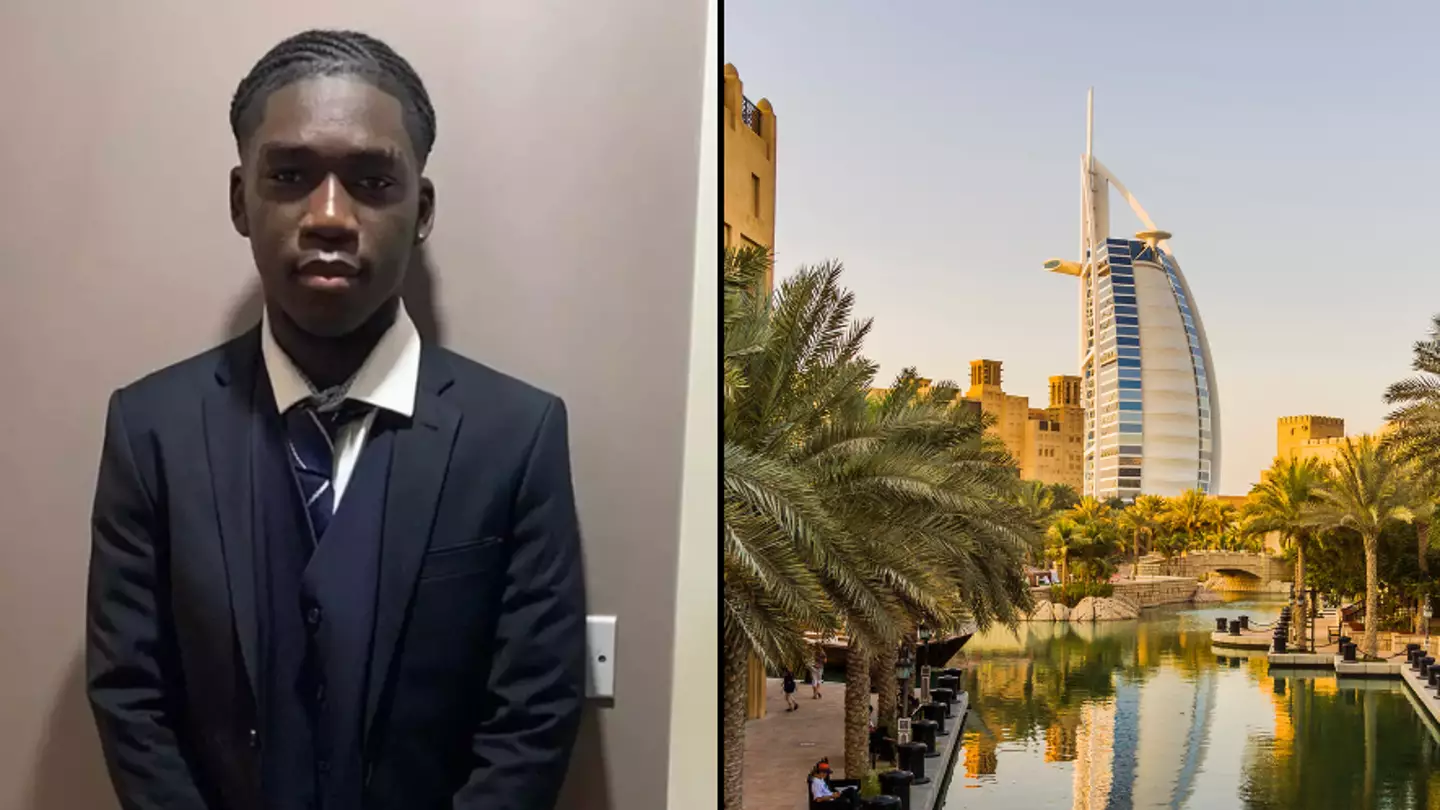
The family of a British teenager facing a 20-year prison sentence in Dubai have spoken out about the ‘nightmare’ situation they face.
18-year-old Marcus Fakana, from Tottenham, London had accompanied his family on a trip to the UAE for his father’s birthday earlier this year.
While on holiday, the teenager met and formed a connection with an unnamed girl who had also travelled to the country from the UK. The two teenagers, who were staying in the same hotel, are said to have struck up a ‘blossoming’ relationship with hopes of continuing their romance upon returning home.
Not long after the girl returned home, Marcus’ nightmare ordeal with the police in Dubai would begin.

18-year-old Marcus Fakana currently faces a 20 year prison sentence in Dubai (Detained in Dubai/ Family Handout)
According to the group Detained in Dubai, who are currently representing Marcus, the girl had hidden the relationship from her ‘strict’ family, however, her mother discovered the relationship upon returning home to the UK and reported it to authorities in the Gulf state.
“Suddenly, police knocked on our hotel door. They said they were taking me in for questioning but wouldn’t tell me why,” Marcus told the group.
“I couldn’t imagine what for. I was frightened and my parents were terrified.”
Unbeknownst to Marcus at the time, the girl was 17 – she has since turned 18 – when they engaged in sexual intercourse, which means she is considered a minor under UAE law. In the UK, the pair’s relationship would be legal.
“Dubai has only recently legalised out of wedlock sex for tourists but still hosts a strict Islamic legal system,” Radha Stirling, CEO of Detained in Dubai, added.
“The girl was just a few months younger than Marcus and he didn’t know that at the time. Since his arrest, she has turned 18 and Marcus would not be facing 20 years in jail. This is not something Dubai should be prosecuting.”

The teenager had engaged in sexual intercourse with a 17-year-old British girl (who has since turned 18) (Getty Stock Images)
Marcus’ family have since set up a GoFundMe page aiming to raise funds to cover the teenager’s ongoing legal costs.
“What was meant to be a happy time has turned into a nightmare for him, our family, and our friends,” the family explained on the page.
“This has happened as a result of someone trying to misuse UAE law against him. He is being charged with a crime that could lead to imprisonment for up to 20 years.”
The family went on to add that Marcus is ‘very scared’ and that his mental health is ‘starting to decline’ due to the situation.
A spokesperson for the government of Dubai has told the BBC: “Under UAE law, the girl is legally classified as a minor, and in accordance with procedures recognised internationally, her mother, being the legal guardian, filed the complaint.
“Dubai’s legal system is committed to protecting the rights of all individuals and ensuring impartial judicial proceedings.”
Marcus is currently scheduled to face trial on 9 December.
Featured Image Credit: (Family Handout/ Getty Stock Images)
Topics: UK News, World News, Travel
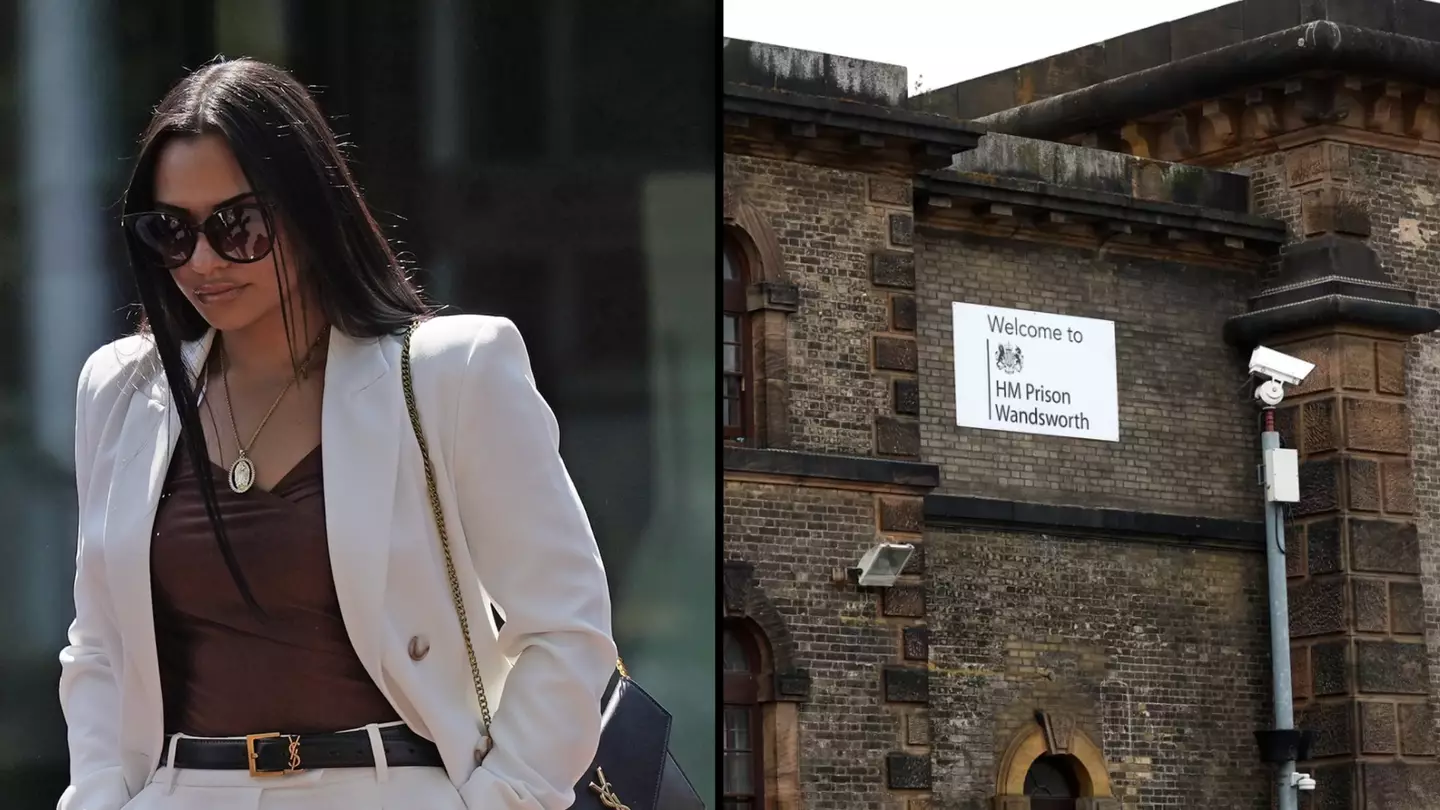
The Wandsworth prison guard who was filmed having sex with an inmate could be facing a lifetime behind bars.
Linda De Sousa Abreu, 30, pleaded guilty to misconduct on Monday, 29 July after being caught having sex with a prisoner on 27 June, with the footage going viral on social media.
Earlier this month, she took to TikTok to address the fact that nobody knows her ‘side of the story’, and told viewers not to fall for fake OnlyFans accounts impersonating her.

Abreu (second from right), appeared in court on Monday, where she was charged with misconduct in public office. (PA)
Prosecutors said that Abreu, who has an OnlyFans account of her own, willingly took part in the video with inmate Linton Weirich, a felon who’s spending time behind bars for an $82,000 (£63,800) luxury goods heist in Kensington, London.
The married mother, of Fulham, south-west London, was originally arrested earlier this month, after a police investigation found her to be the guard having sex with Weirich in the men’s prison between June 26-28.
She was arrested at Heathrow Airport en route to Madrid, having told the prison of her intention not to return to work.
Abreu pleaded guilty to one count of misconduct in a public office, and was granted conditional bail having been scheduled to appear in Isleworth Crown Court on 7 November.
Her lawyers did not immediately issue a statement.
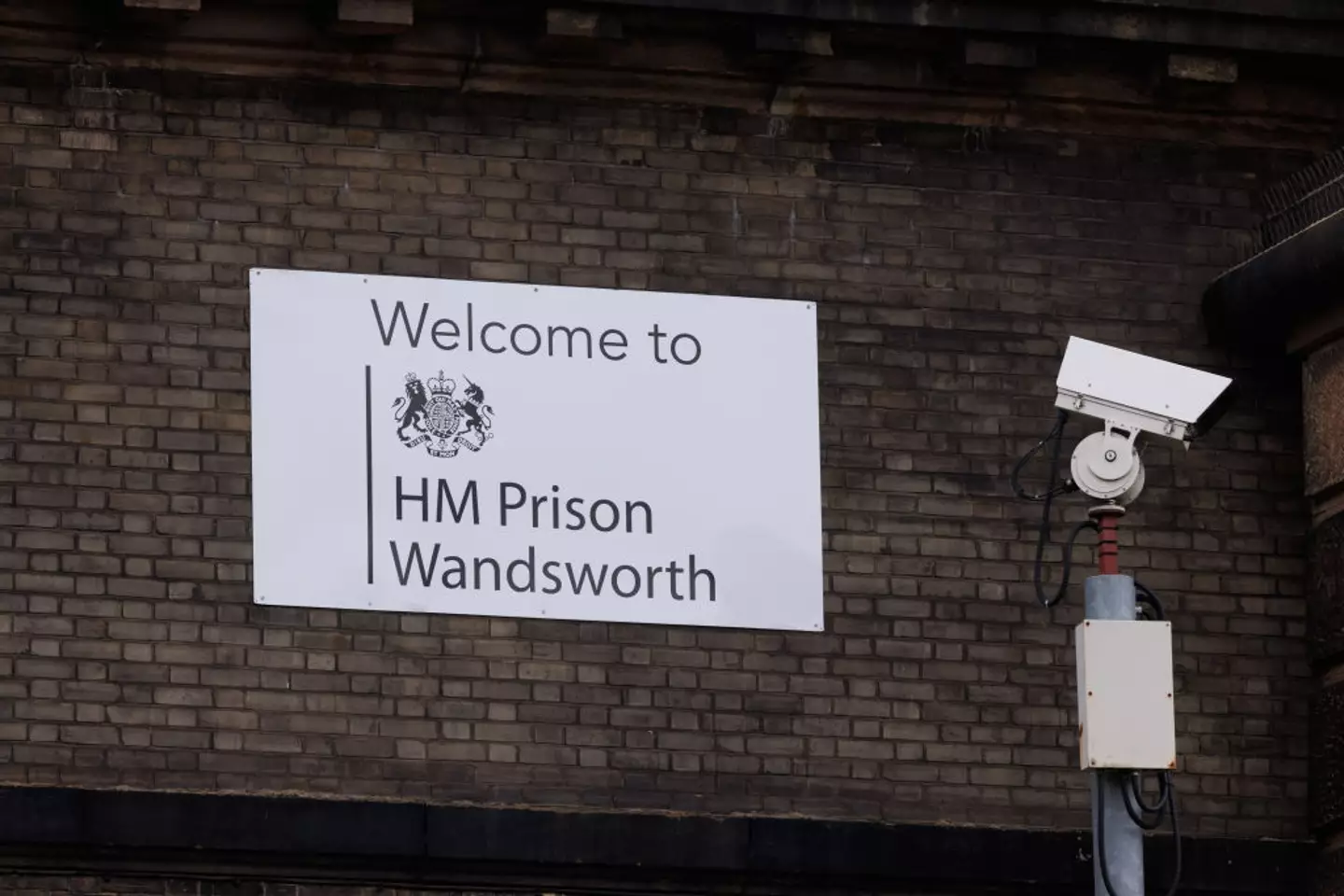
The video was filmed at the prison she worked at. (Dan Kitwood/Getty Images)
The charge states that De Sousa Abreu ‘wilfully and without reasonable excuse or justification misconducted yourself in a way which amounted to an abuse of the public’s trust in the office holder by engaging in a sexual act with a prisoner in a prison cell’.
But how serious is the charge?
Misconduct in public office (MiPO) is a common law offence that can only be tried on indictment, according to UK law, with the maximum sentence of life imprisonment.
The offence concerns wilful neglect or abuse of the power or responsibilities of the public office held, with there being a direct link between the misconduct and an abuse of those powers.
This can raise several complex or sensitive issues.

Abreu will appear in Crown Court on 7 November. (PA)
Tetteh Turkson, of the Crown Prosecution Service, stated: “This was a shocking breach of the public’s trust. De Sousa was clearly an enthusiastic participant who wrongly thought she would avoid responsibility.
“The CPS recognises there is no excuse for any prison officer who conducts themselves in such a manner, and we will never hesitate to prosecute those who abuse their position of power.
“After working closely with the Metropolitan Police to build the strongest possible case, De Sousa had no option but accept she was guilty. She will now rightly face the consequences of her actions.”
Featured Image Credit: PA / Peter Nicholls/Getty Images
Topics: Crime, Prison, Social Media, Viral, UK News
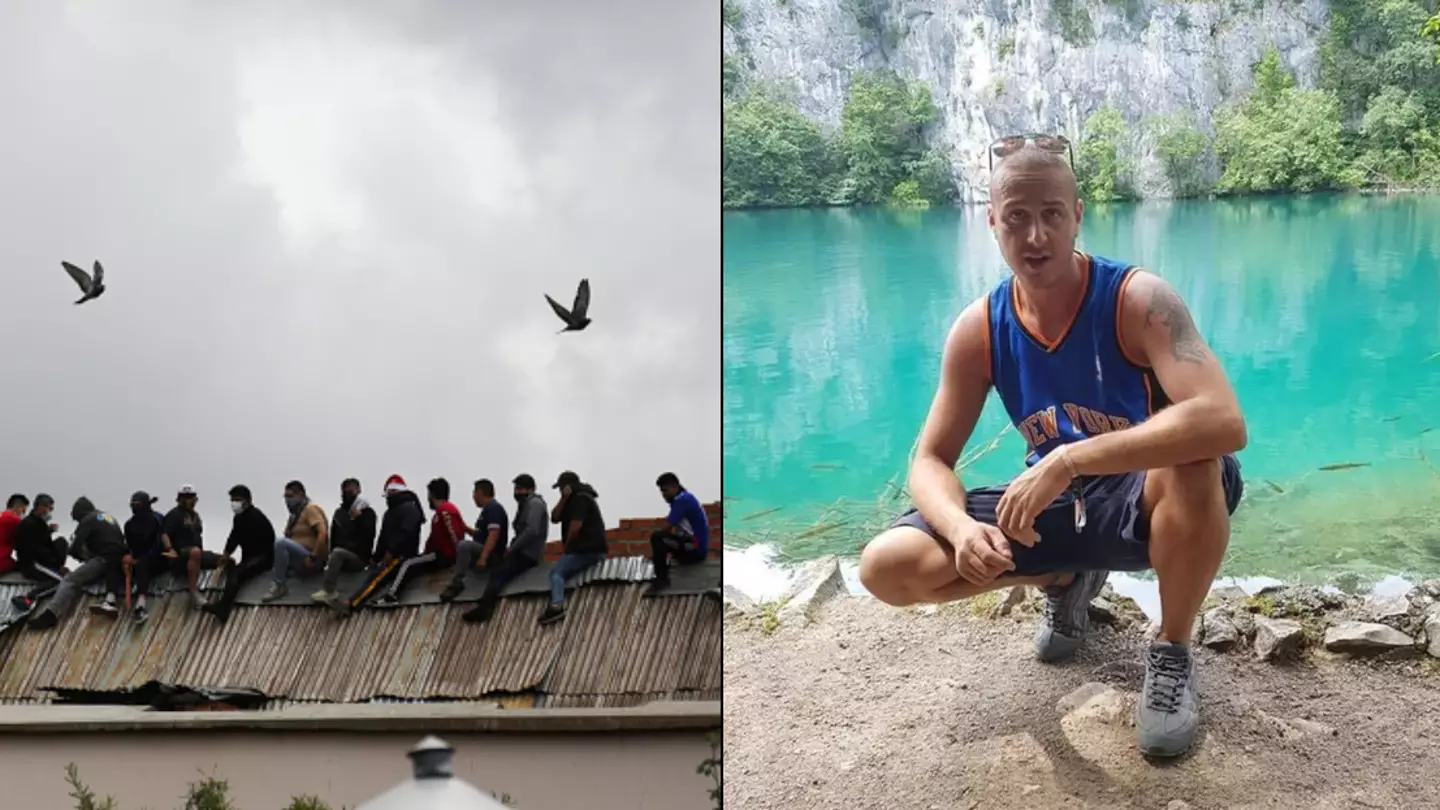
There aren’t exactly a lot of perks when it comes to being in prison, but probably the only added benefit of being behind bars is that you know you’re going to be fed, watered and have a roof over your head.
However, this is not the case in every country – and it is certainly not a guarantee in some of the world’s toughest slammers which are run by inmates, rather than authorities.
Correctional facilities such as Bolivia’s fearsome San Pedro prison, situated in the capital city of La Paz, operate in stark contrast to the majority of its international counterparts, as the jail is considered a society within itself.
As a result, the people locked up there are a law unto themselves and although crime and violence are commonplace, San Pedro also boasts quite the sophisticated business model.
But just like in the outside world, money talks – and if you haven’t got any, you’re going to be in for a bumpy ride.
Which is why the family of Brit backpacker John Henshaw launched a GoFundMe to pay for his essentials, food, a cell and legal fees – as without any cash flow, he’d be ‘sleeping in the corridors’ of a seriously dangerous place.
John, 39, has been locked up in San Pedro since he was allegedly caught with a small amount of cannabis at the La Paz International Airport in February, and will be waiting at least another 90 days before his case gets looked at.
For now, it’s all about getting the father-of-one through each day – although his relatives say it’s proving difficult to get him the supplies he needs, as he is only being ‘drip fed’ money from the British Embassy in Bolivia so that he doesn’t acquire enough wealth to be robbed inside.

John Henshaw desperately needs cash to survive in San Pedro prison. (Kennedy News and Media)
Henshaw’s pal Lewis Powell dubbed San Pedro a ‘hellhole’ and was left stunned by the idea that inmates have to pay for ‘the privilege of getting a cell in this horrible prison’.
So, what exactly is this bizarre accommodation situation all about?
San Pedro’s own society
If you have seen Prison Break and remember what Michael Schofield experienced in Sona, the fictional Panama prison where drug kingpin Lechero calls the shots, you’ll already have an idea of what San Pedro is like.
Or if you tuned into the episode of The World’s Toughest Prisons which the Bolivian jail featured in, I’m sure you are already well versed in how things go down behind these prison walls.
For starters, those inside each live in several different housing sections which each operate like a small village – boasting their own courtyards, restaurants, markets and shops.
Inmates at this lock-up function independently without the help of guards and have instead developed their own set of rules, punishments, a political system and an economy.
They each have jobs inside the community which help them earn cash – so criminals are working as hairdressers, shopkeepers, messengers, cleaners and everything in between to make a few quid.
At one point, savvy jailbirds even turned San Pedro into a tourist attraction after realising they could cash in on the curiosity of holidaymakers by showing them around the place – and at its height, 50 tours a day were taking place.
Bidding for a bed
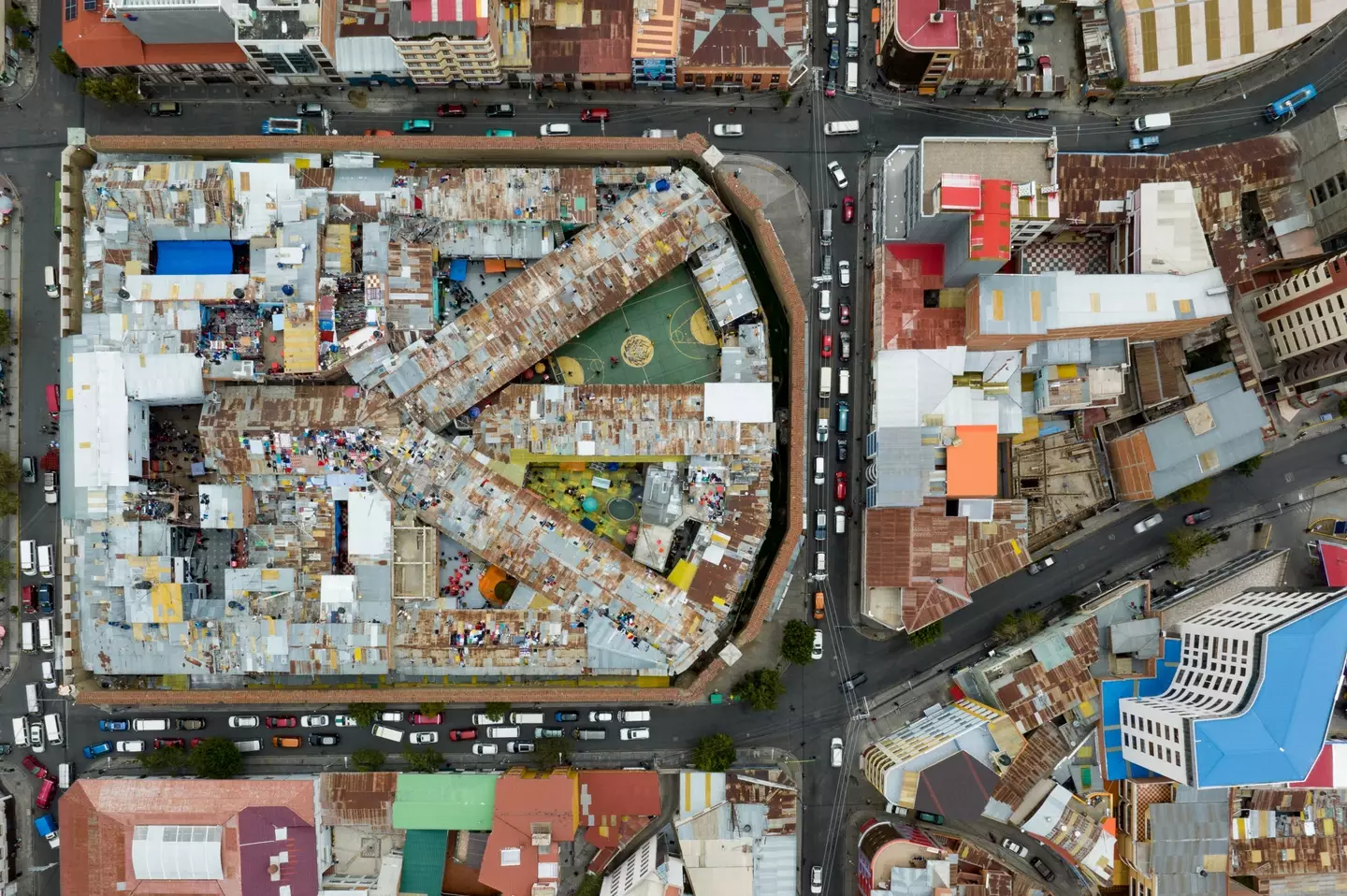
The facility in Bolivia is regarded as one of the world’s toughest prisons. (JORGE BERNAL/AFP via Getty Images)
These sources of income are obviously very important to the people who call this place home – as often, the survival of their families who have moved inside the prison with them depends on it.
Or, they may need some money to put down a deposit on a new pad.
That’s because inmates aren’t allocated cells upon their arrival due to the lack of authority in San Pedro, meaning that newbies need to immediately start scouring for available real estate for them to take over when they arrive.
To make it easier for convicts, there’s a Trip Advisor-style rating system to inform them about the quality of prospective cells in the various housing sections including Posta, Pinos, Alamos, San Martin, Prefectura and Palmar.
Even in San Pedro, you get what you pay for – so if you have the cash flow, you can buy your way to a more comfortable sentence by getting in the nicer areas, where residents act similarly to those in gated communities.
They lock out all the riffraff at around 9pm on a nightly basis, which is often when violence and stabbings occur in the less desirable parts of the correctional facility.
So if you value your safety and have the revenue stream for it, spend that bit extra – as can you really put a price on a good night’s sleep?
Cost of cells
That’s not to say that these cushty cells – which can feature jacuzzis, cable TV, private kitchens, en-suite bathrooms, carpet, and stunning views – come cheap, though.
Inmates have to negotiate a price for their desired cell with the outgoing prisoner who previously resided in it, before signing a sale-purchase agreement and later drawing up an official property title deed.
I told you it was sophisticated!
Some cells are more than one floor, as wealthy inmates can fork out for an extension on them if they have the money and kit them out with all the home comforts they can dream of.
These apartment-style cells can go for as much as £23,625 ($30,000), according to The Architectural Review.
On the other end of the spectrum, there are cells dubbed as ‘coffins’ – which up to five criminals can be crammed into at one time – that usually cost a few hundred pounds.
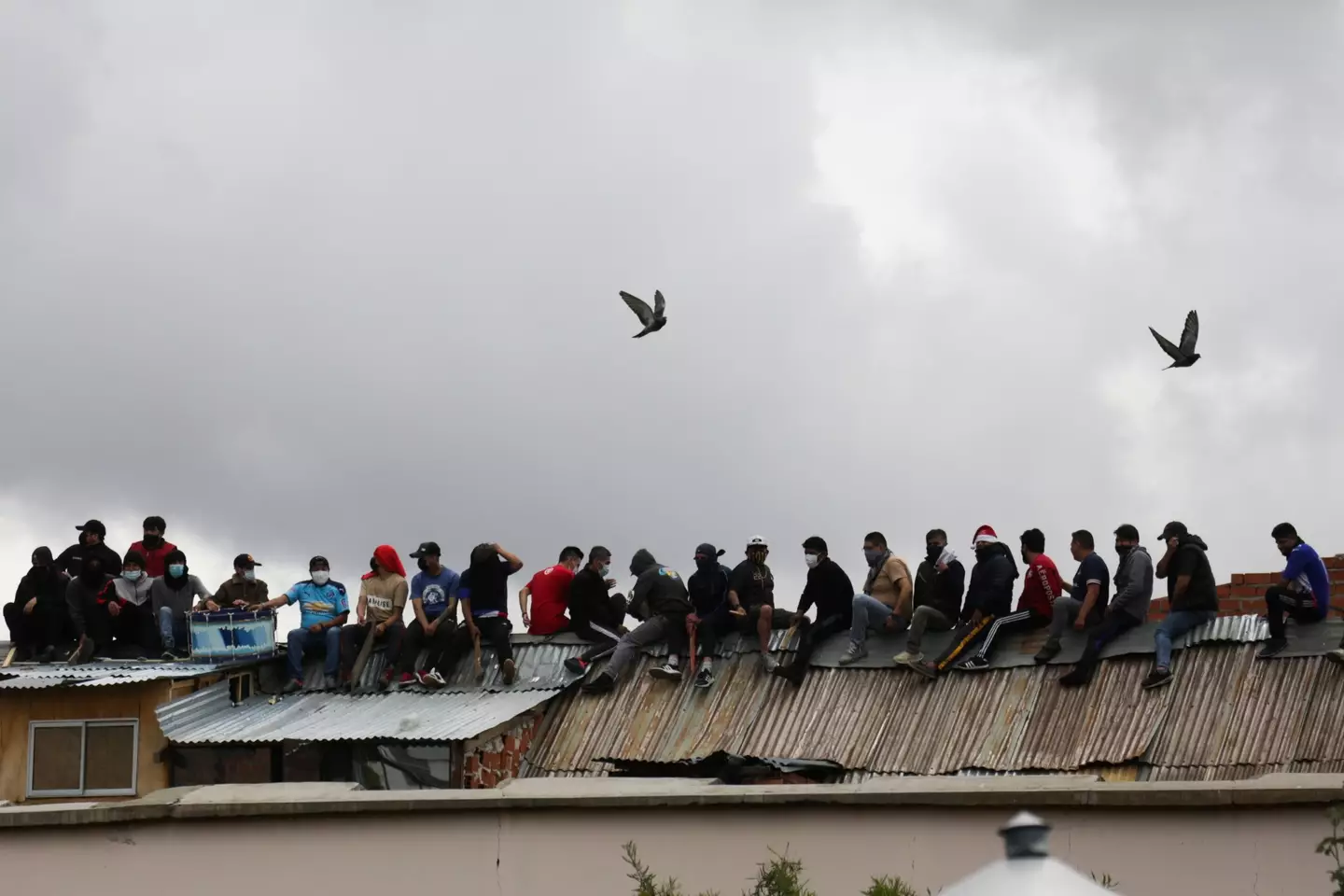
Thousands of people reside in San Pedro, but it was only built to accommodate hundreds. (Luis Gandarillas/Anadolu Agency via Getty Images)
Which is still quite pricey considering it’s compared to a wooden casket.
La Razon reports that cell prices typically range from £236 ($300) to £7,872 ($10,000) in San Pedro, with the more comfortable and secure cells costing significantly more.
The president of the ‘inmates council of representatives’ inside the Bolivia jail, Limber Porcel, previously revealed that accommodation is usually assigned by seniority.
Porcel explained that the ‘council’ collect monthly payments from inmates, but claimed this cash goes to a ‘communal fund’ used to pay for maintenance, repairs, and improvements.
According to the publication, some criminals have even taken it upon themselves to construct their own cells, despite bills running into the thousands.
Rent a room
If you simply can’t afford to purchase a cell in San Pedro, you can rent.
Affluent inmates with plenty of money often snap up cells as investments, before hiring them out to struggling prisoners who can’t afford hefty down payments.
At the end of their stay inside a rented cell, the occupant will be slapped with a bill for the water and electricity they have used during their time there, The Architectural Review reports.
Amenities are another expense inmates have to somehow stump up for – as due to San Pedro’s location in the world’s highest capital city, which sits 3,650m above sea level – staying warm is key to survival.
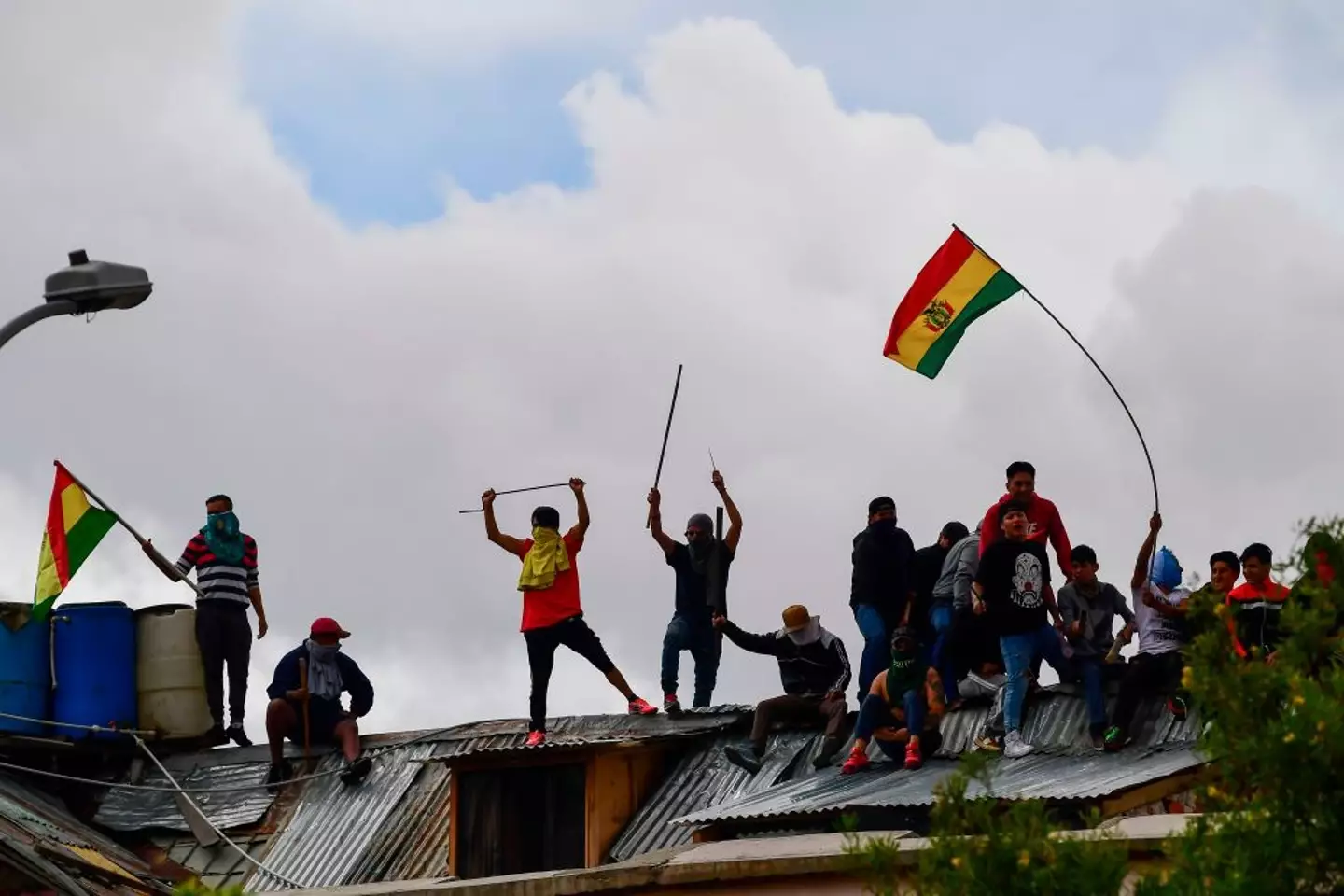
Prisoners have to purchase their cells, or else they either rent off other prisoners or sleep on the corridors. (RONALDO SCHEMIDT/AFP via Getty Images)
On top of rent fees, people in this facility have to pay for food, clothing and medicine.
So I’m sure you can understand why the family of John Henshaw are pretty concerned about how he is faring inside San Pedro.
The latest update shared to GoFundMe explained that the Brit, from Greater Manchester, was in an ‘induction type holding cell, crammed in with a lot of other prisoners’.
The post explained that he would remain in this cell for a period of five days, before he would get his own space.
A Foreign, Commonwealth and Development Office spokesperson told LADbible: “We are providing consular support to a British man detained in Bolivia and are in contact with the local authorities.”
LADbible has reached out to the Ministry of Justice in Bolivia for comment.
Featured Image Credit: Luis Gandarillas/Anadolu Agency via Getty Images / Kennedy News and Media
Topics: World News, Prison, Crime, Money, Home, UK News, Weird
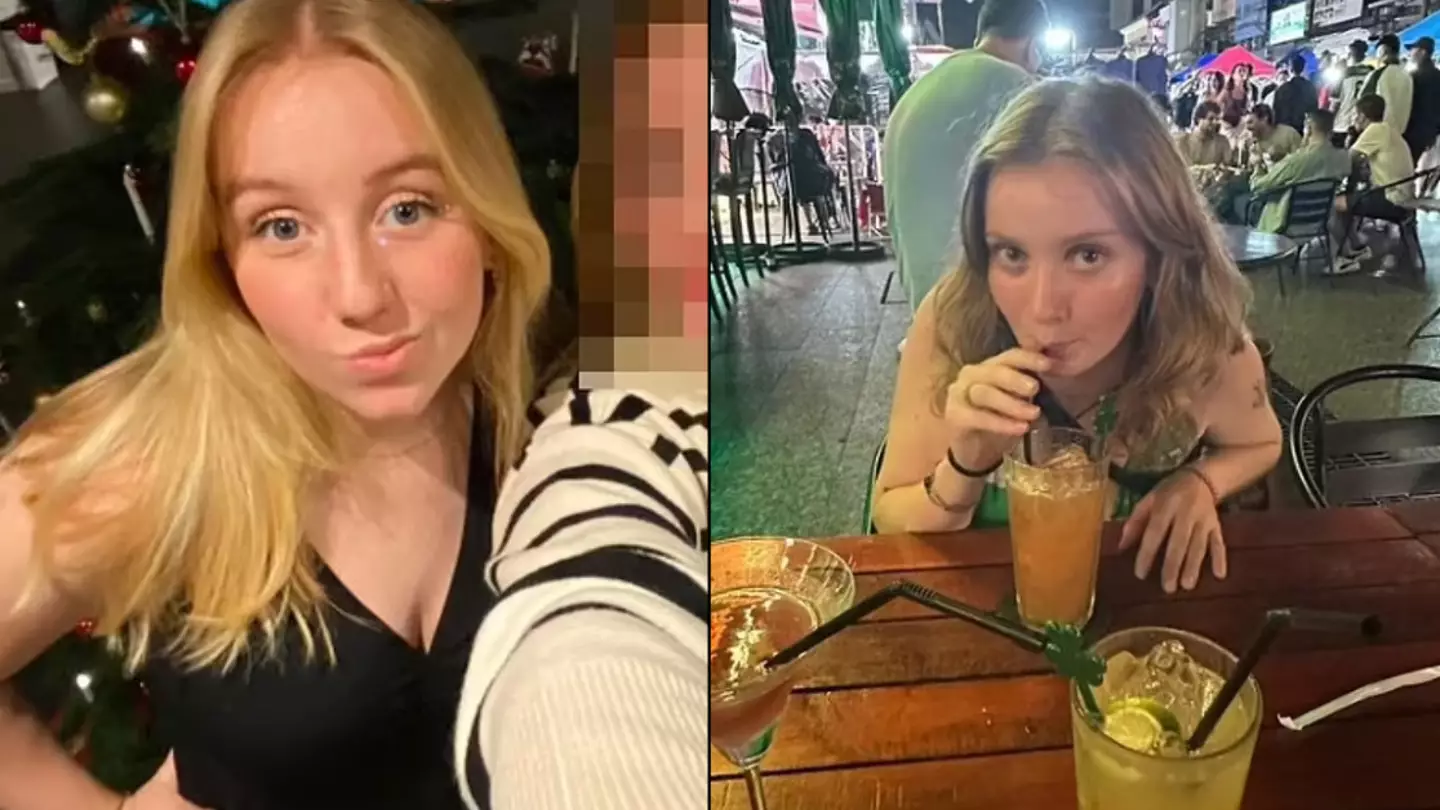
The two Danish tourists killed in the suspected methanol poisoning in Laos have been identified.
Earlier this week, news broke of a suspected mass poisoning in the popular tourist town of Vang Vieng, with six foreign tourists confirmed to have been killed.
The casualties include 28-year-old British national Simone White, Australian friends Bianca Jones and Holly Bowles, both 19, an unnamed American man and the two Danish women, who have now been identified.
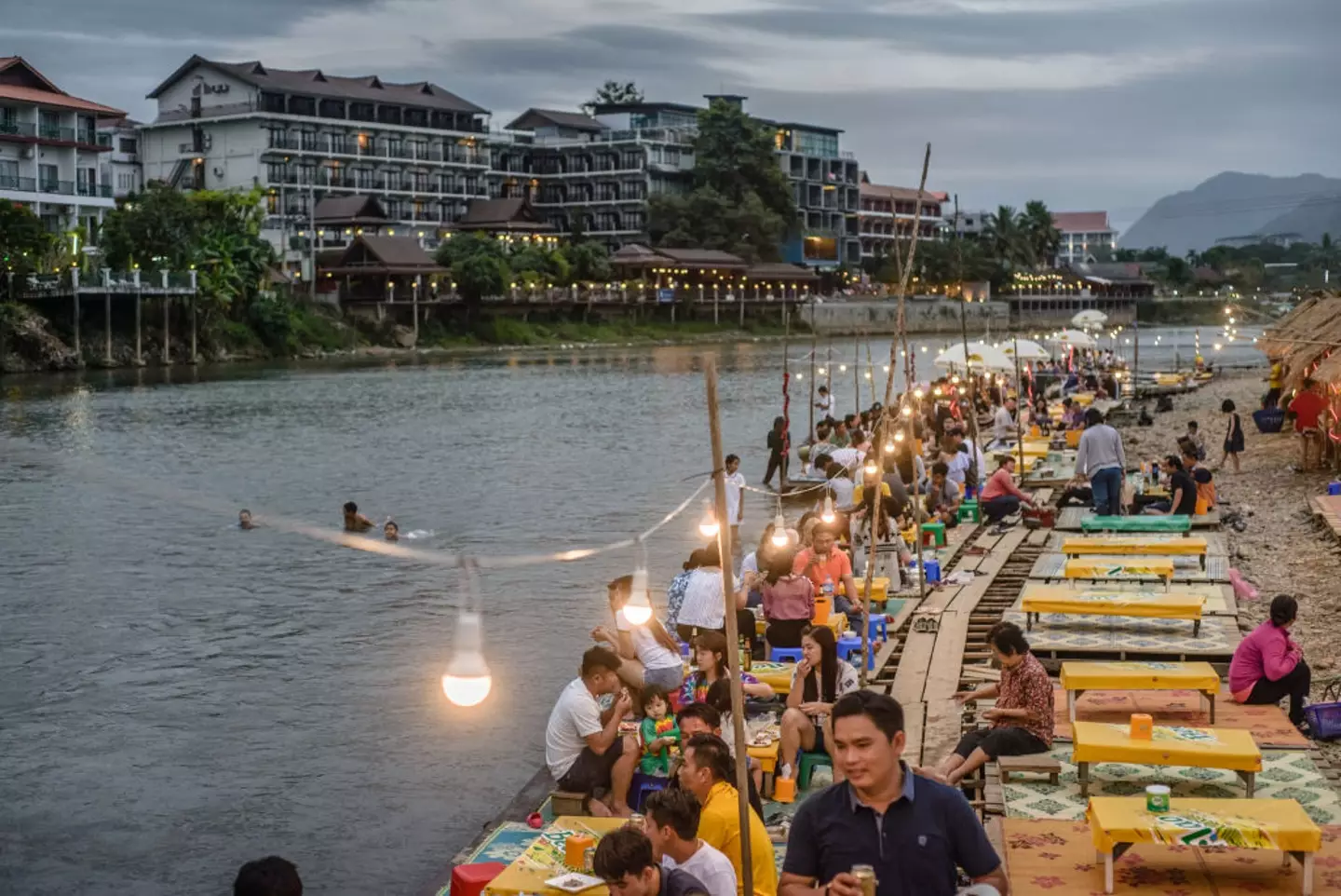
Vang Vieng in Laos (Oleksandr Rupeta/NurPhoto via Getty Images)
According to a report published by MailOnline, the two women killed are Anne-Sofie Orkild Coyman, 20, and Freja Vennervald Sorensen, 21, both from Roskilde, Denmark.
It has also been reported that a further 11 foreign nationals are currently in hospital.
Friends Coyman and Sorensen are said to have been on a backpacking trip across Southeast Asia and had been staying at the Nana Backpackers hostel in Vang Vieng before taking ill. The manager and owner of the hostel have since been detained by local authorities as part of an ongoing investigation into the deaths.
Concern for welfare of the two women was raised by a Belgian man who’d previously agreed to meet up with them in Vang Vieng. A friend of the man’s would later share a chilling warning to travellers in the area, revealing that Coyman and Sorensen had passed away after ‘vomiting blood for 13 hours’.
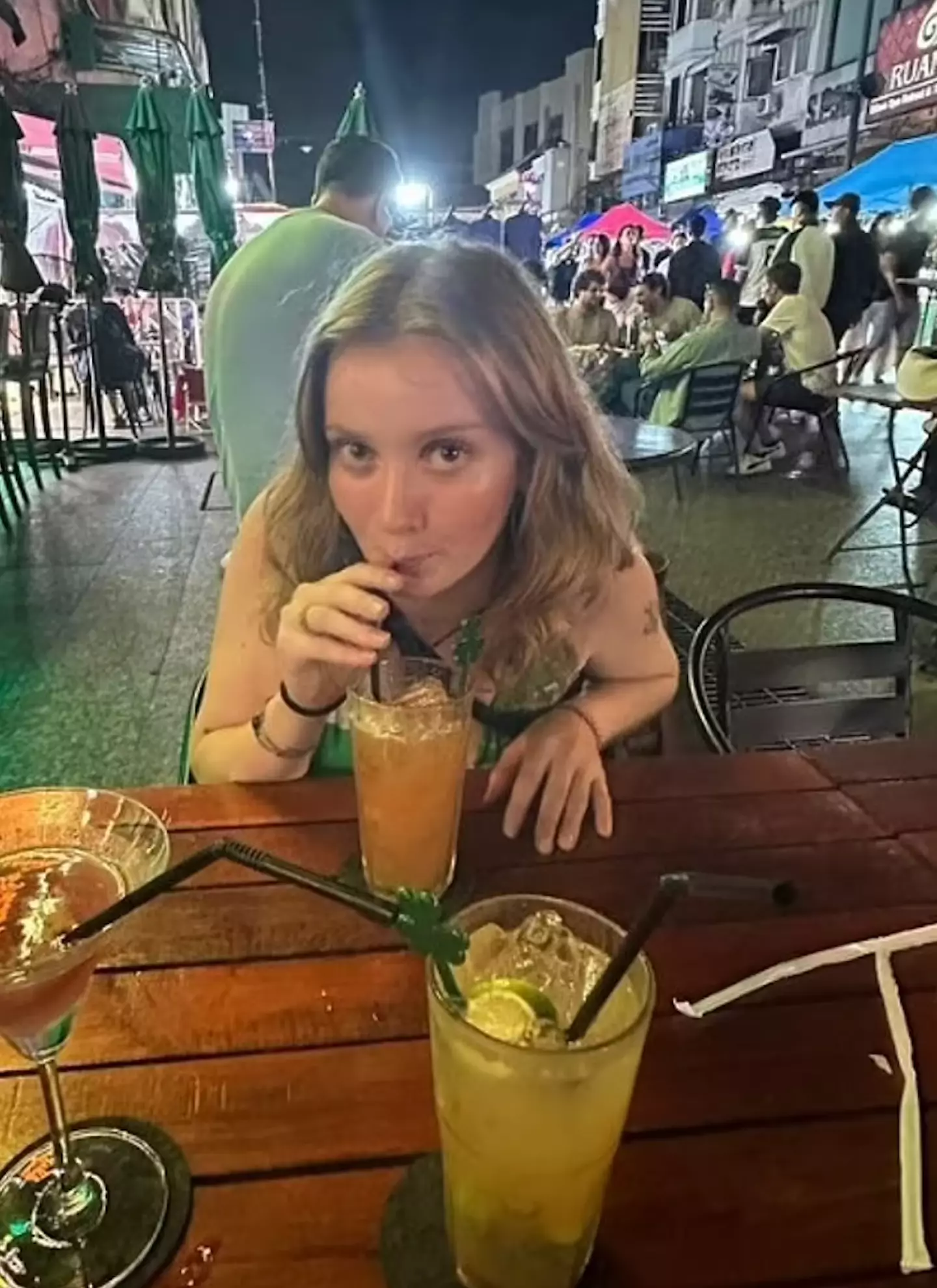
Freja Vennervald Sorensen (Instagram)
“The past few days I have been busy with a Belgian friend looking for two girls he travelled with,” the man wrote.
“For more than 72 hours, no contact could be made while they had agreed to meet in Vang Vieng.
“The strange thing was that their last message was that they had both been vomiting blood for 13 hours… They have both since died.”
A local police report, shared by The Sydney Morning Herald, stated the two friends had visited various bars in the town on 12 November, before returning to their hostel at around midnight.
“Until November 13, they slept in the room and did not go out,” a translation from the document read.
“At 6pm, the guest house staff went to check and saw [Coyman and Sorensen] lying unconscious on the bathroom floor, so they were brought to Vang Vieng Hospital. At that time, they were in a coma.”

Anne-Sofie Orkild Coyman (Facebook)
Meanwhile, an official statement from the Laos government offered their ‘deepest condolences’ to the families of the six victims and promised to bring the perpetrators ‘to justice’.
“The Government of the Lao PDR is profoundly saddened over the loss of lives of foreign tourists in Vangvieng District, Vientiane Province, and expresses its sincere sympathy and deepest condolences to the families of the deceased,” the statement read.
“The Government of the Lao PDR has been conducting investigations to find causes of the incident and to bring the perpetrators to justice in accordance with the law.
“The Government of the Lao PDR reaffirms that it always attaches importance and pays attention to the safety of both domestic and foreign tourists.”